Happiness Aristotle Quotes
Collection of top 57 famous quotes about Happiness Aristotle
Happiness Aristotle Quotes & Sayings
Happy to read and share the best inspirational Happiness Aristotle quotes, sayings and quotations on Wise Famous Quotes.
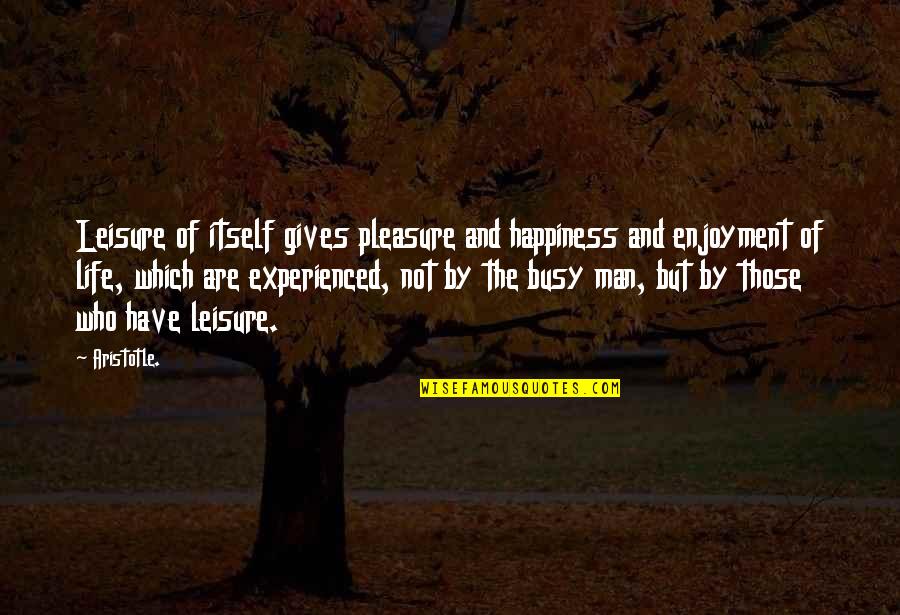 Leisure of itself gives pleasure and happiness and enjoyment of life, which are experienced, not by the busy man, but by those who have leisure.
— Aristotle.
Leisure of itself gives pleasure and happiness and enjoyment of life, which are experienced, not by the busy man, but by those who have leisure.
— Aristotle.
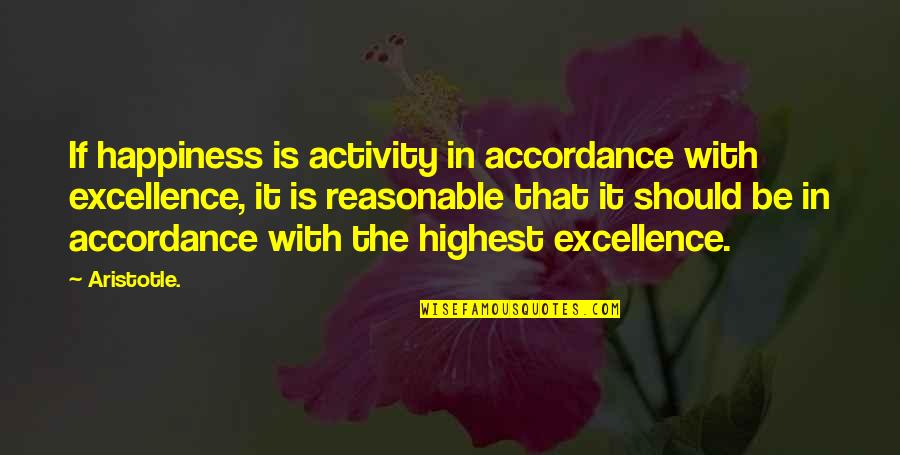 If happiness is activity in accordance with excellence, it is reasonable that it should be in accordance with the highest excellence.
— Aristotle.
If happiness is activity in accordance with excellence, it is reasonable that it should be in accordance with the highest excellence.
— Aristotle.
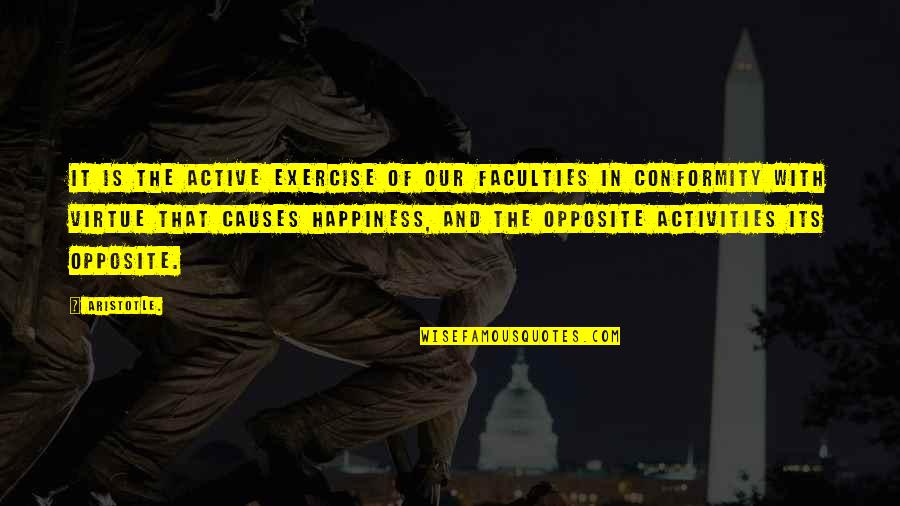 It is the active exercise of our faculties in conformity with virtue that causes happiness, and the opposite activities its opposite.
— Aristotle.
It is the active exercise of our faculties in conformity with virtue that causes happiness, and the opposite activities its opposite.
— Aristotle.
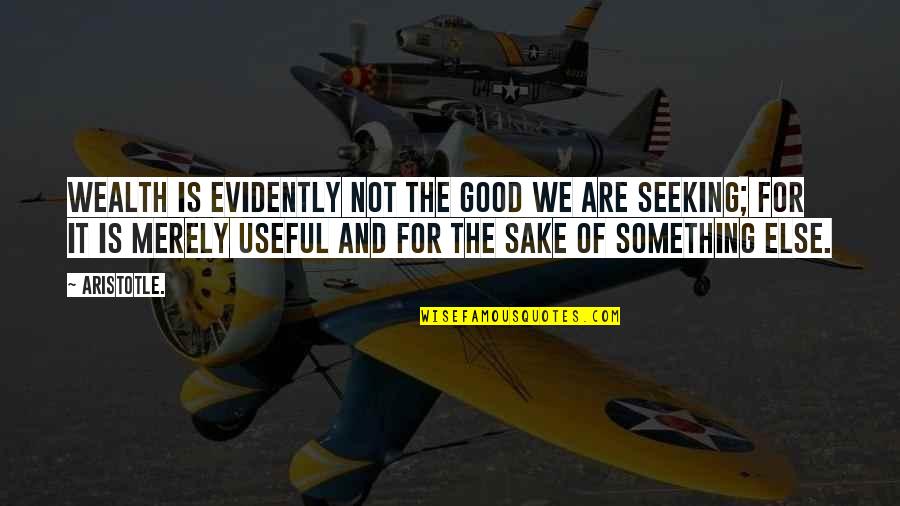 Wealth is evidently not the good we are seeking; for it is merely useful and for the sake of something else.
— Aristotle.
Wealth is evidently not the good we are seeking; for it is merely useful and for the sake of something else.
— Aristotle.
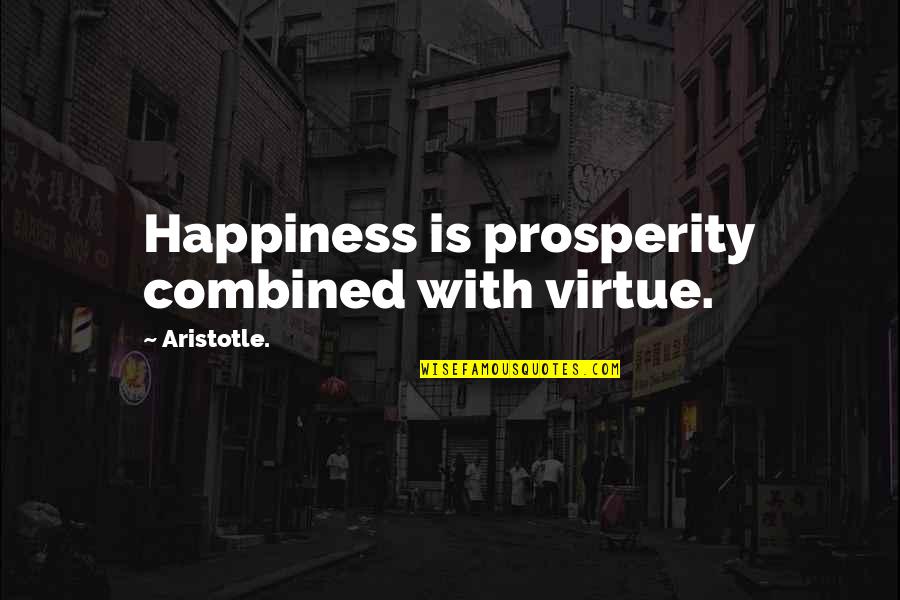 Happiness is prosperity combined with virtue.
— Aristotle.
Happiness is prosperity combined with virtue.
— Aristotle.
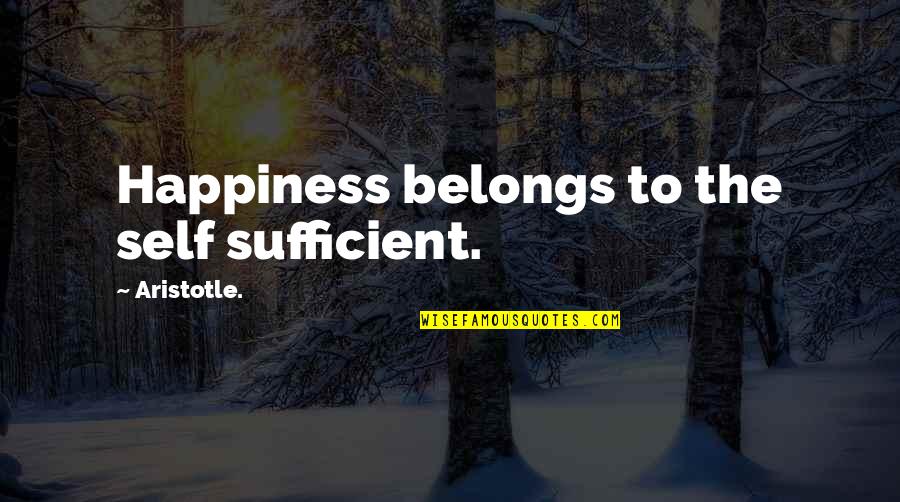 Happiness belongs to the self sufficient.
— Aristotle.
Happiness belongs to the self sufficient.
— Aristotle.
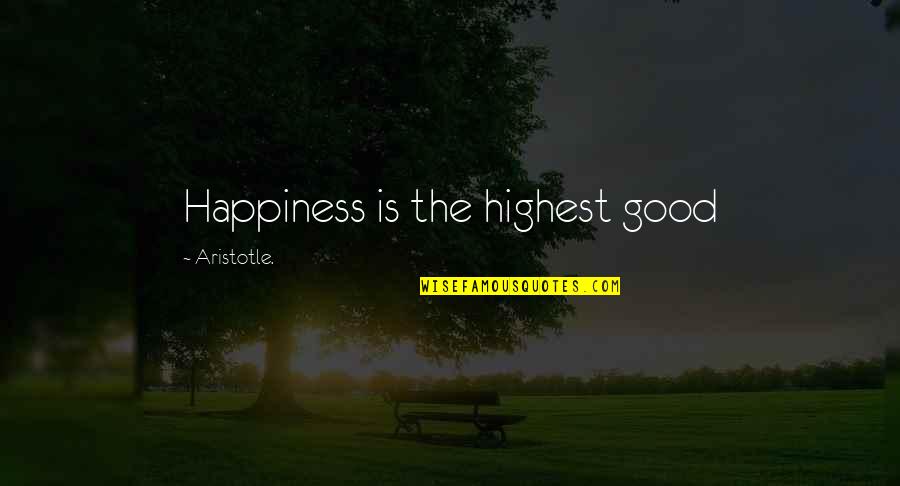 Happiness is the highest good
— Aristotle.
Happiness is the highest good
— Aristotle.
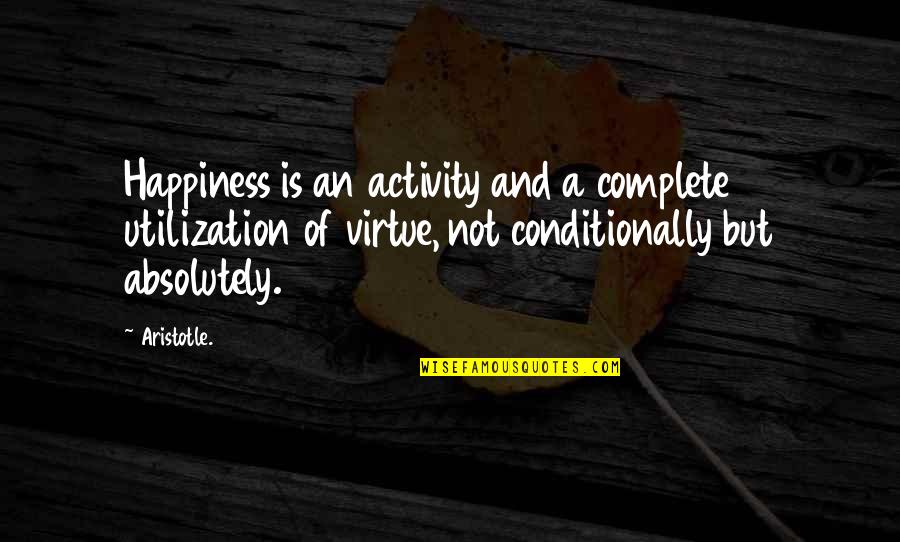 Happiness is an activity and a complete utilization of virtue, not conditionally but absolutely.
— Aristotle.
Happiness is an activity and a complete utilization of virtue, not conditionally but absolutely.
— Aristotle.
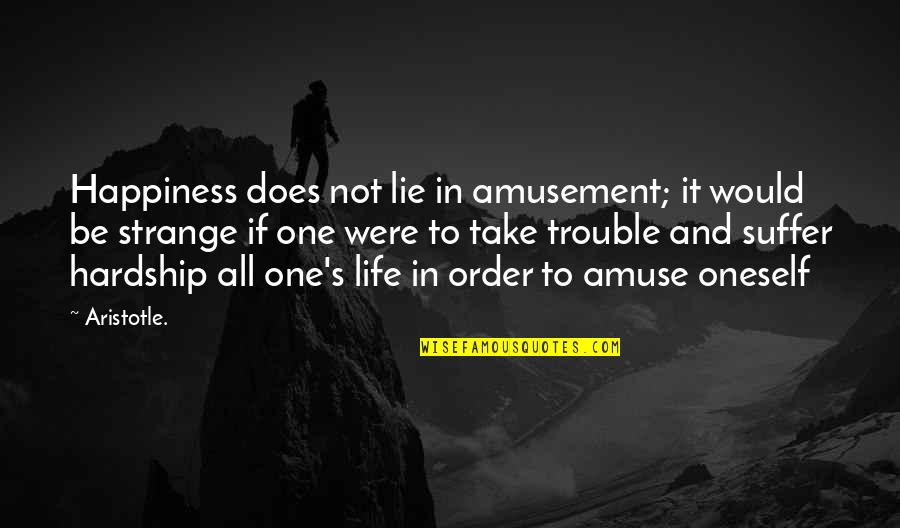 Happiness does not lie in amusement; it would be strange if one were to take trouble and suffer hardship all one's life in order to amuse oneself
— Aristotle.
Happiness does not lie in amusement; it would be strange if one were to take trouble and suffer hardship all one's life in order to amuse oneself
— Aristotle.
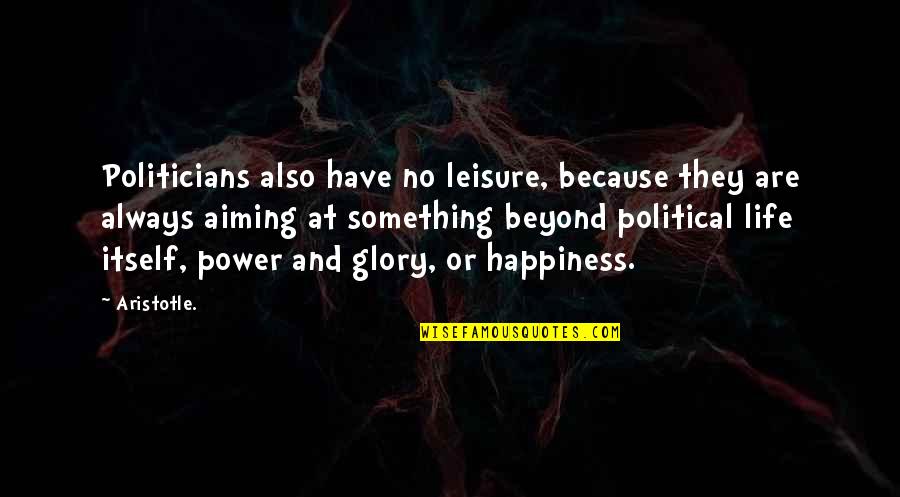 Politicians also have no leisure, because they are always aiming at something beyond political life itself, power and glory, or happiness.
— Aristotle.
Politicians also have no leisure, because they are always aiming at something beyond political life itself, power and glory, or happiness.
— Aristotle.
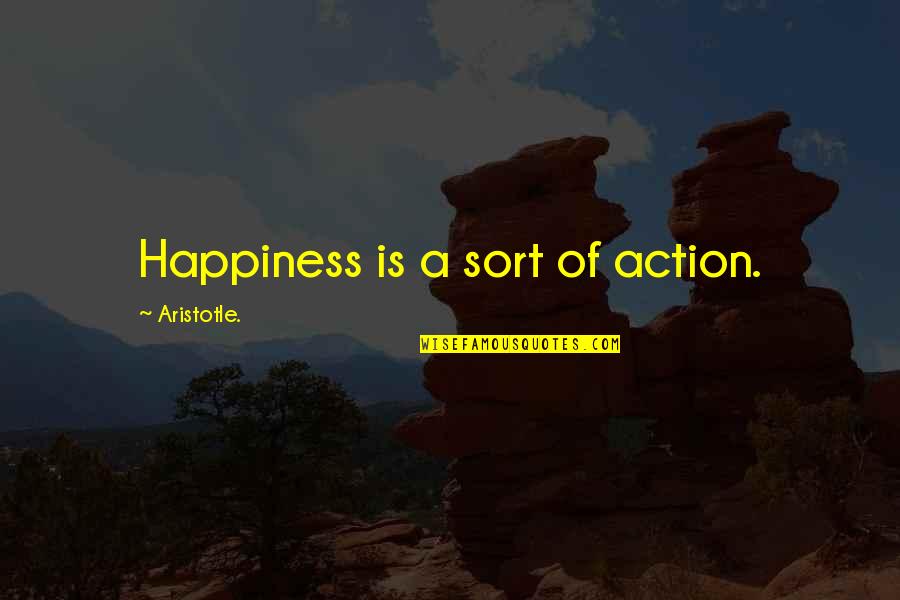 Happiness is a sort of action.
— Aristotle.
Happiness is a sort of action.
— Aristotle.
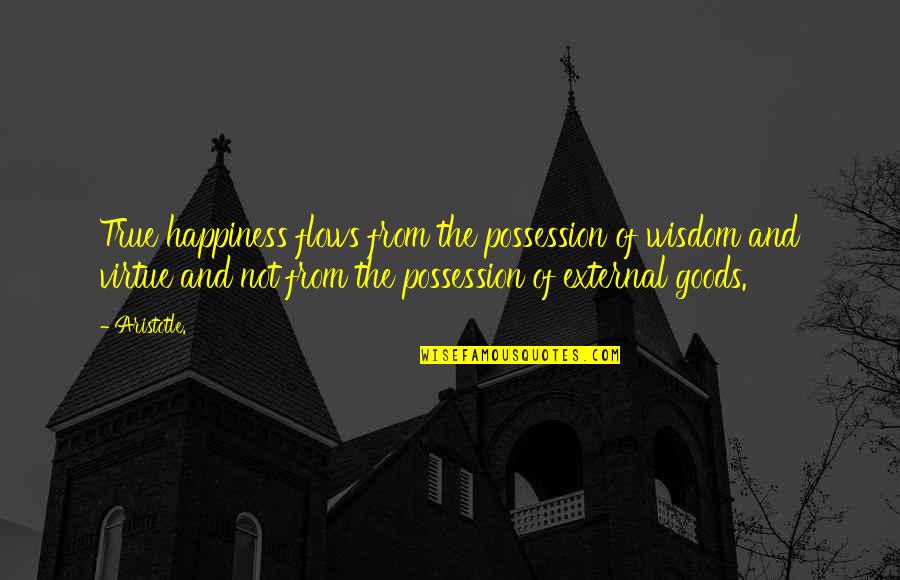 True happiness flows from the possession of wisdom and virtue and not from the possession of external goods.
— Aristotle.
True happiness flows from the possession of wisdom and virtue and not from the possession of external goods.
— Aristotle.
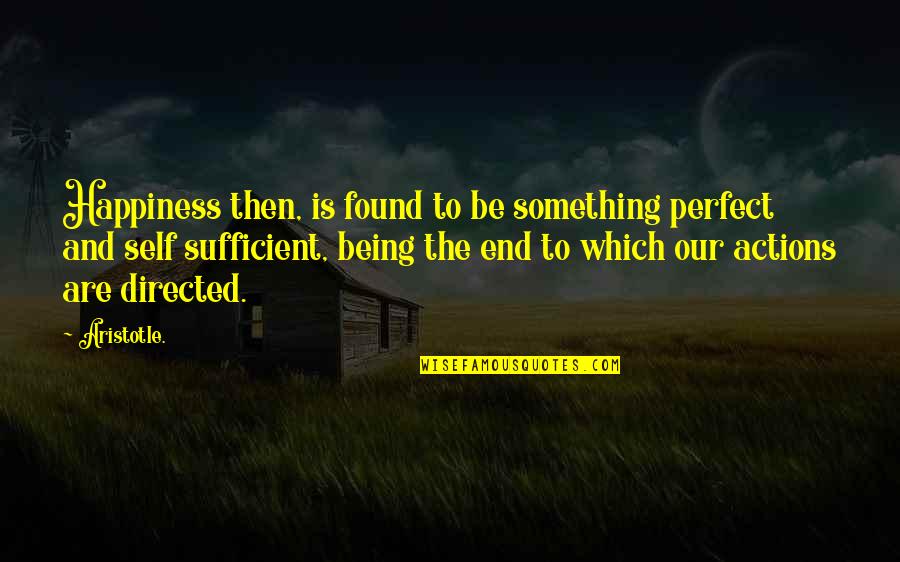 Happiness then, is found to be something perfect and self sufficient, being the end to which our actions are directed.
— Aristotle.
Happiness then, is found to be something perfect and self sufficient, being the end to which our actions are directed.
— Aristotle.
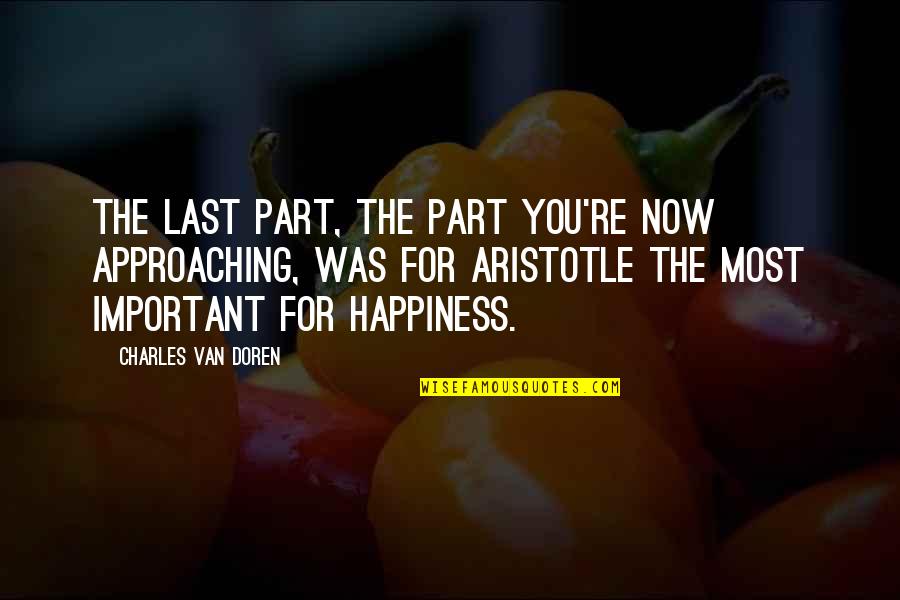 The last part, the part you're now approaching, was for Aristotle the most important for happiness.
— Charles Van Doren
The last part, the part you're now approaching, was for Aristotle the most important for happiness.
— Charles Van Doren
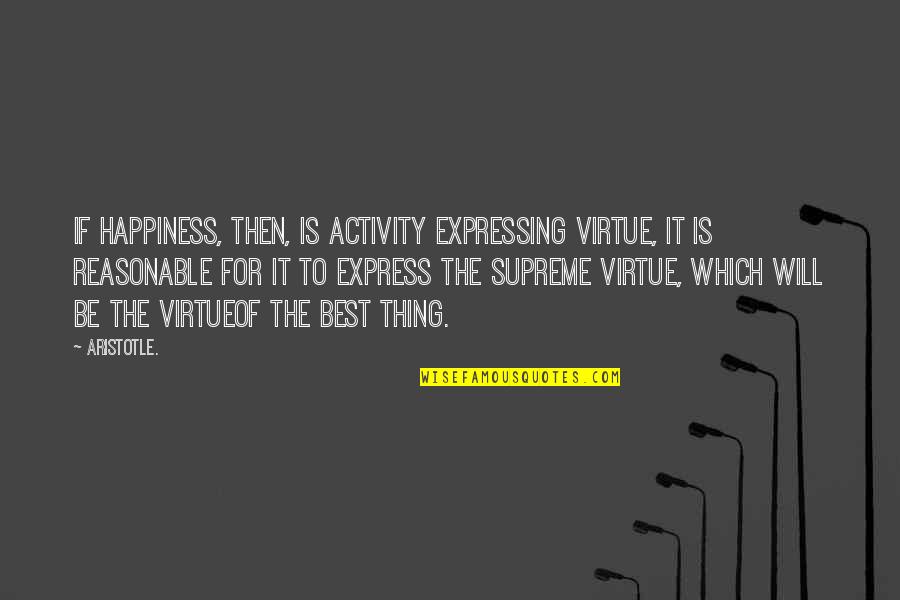 If happiness, then, is activity expressing virtue, it is reasonable for it to express the supreme virtue, which will be the virtueof the best thing.
— Aristotle.
If happiness, then, is activity expressing virtue, it is reasonable for it to express the supreme virtue, which will be the virtueof the best thing.
— Aristotle.
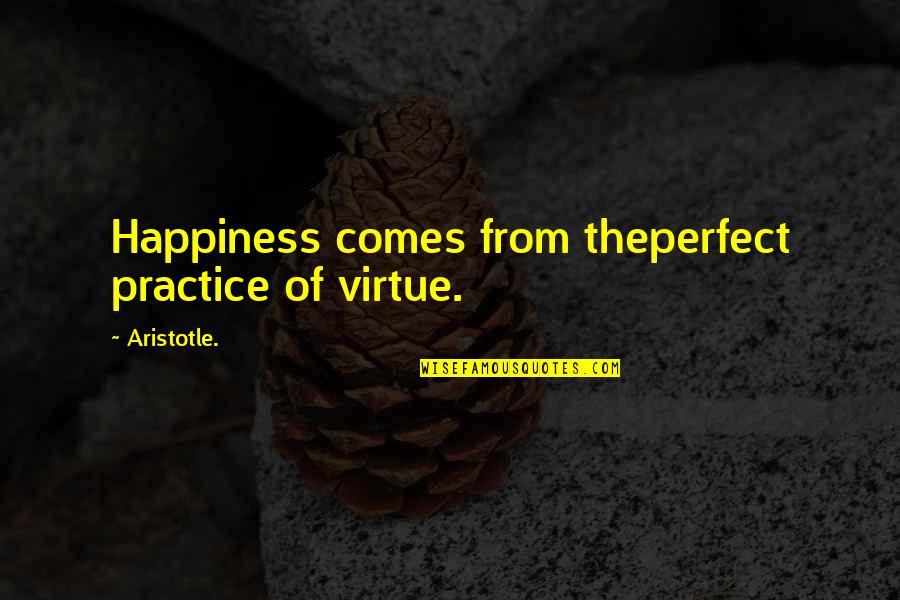 Happiness comes from theperfect practice of virtue.
— Aristotle.
Happiness comes from theperfect practice of virtue.
— Aristotle.
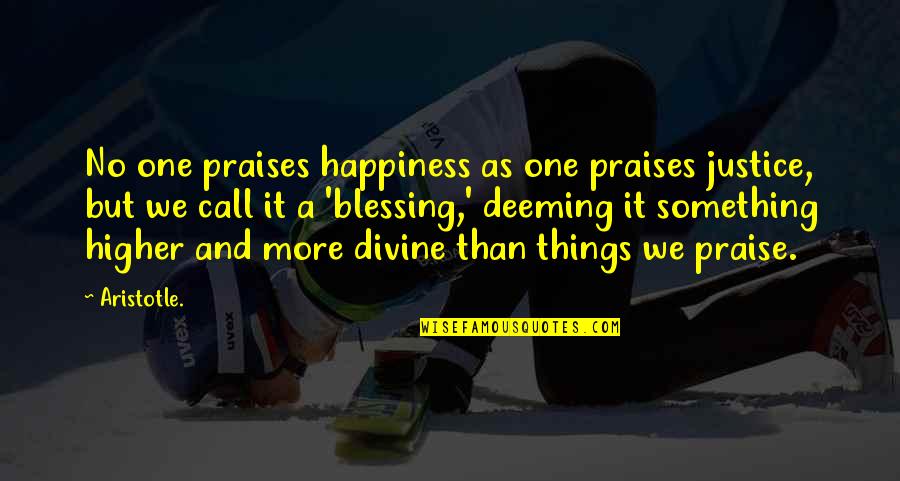 No one praises happiness as one praises justice, but we call it a 'blessing,' deeming it something higher and more divine than things we praise.
— Aristotle.
No one praises happiness as one praises justice, but we call it a 'blessing,' deeming it something higher and more divine than things we praise.
— Aristotle.
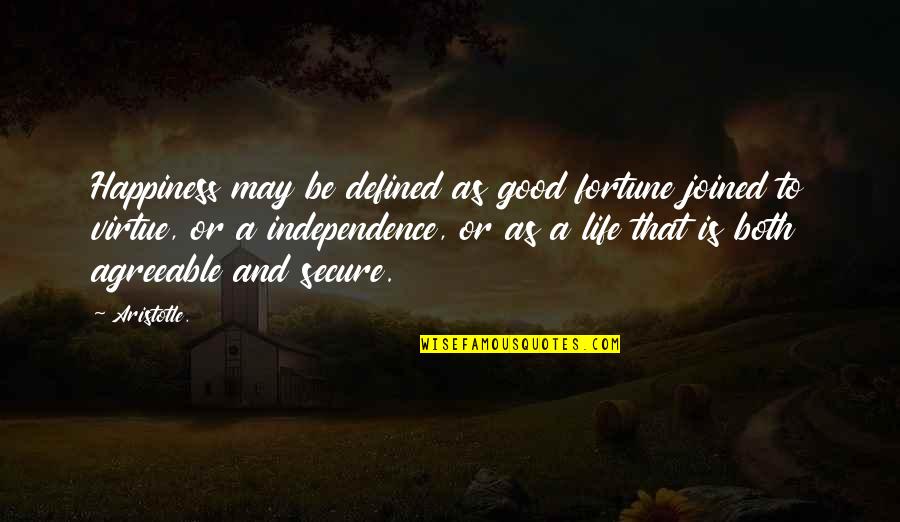 Happiness may be defined as good fortune joined to virtue, or a independence, or as a life that is both agreeable and secure.
— Aristotle.
Happiness may be defined as good fortune joined to virtue, or a independence, or as a life that is both agreeable and secure.
— Aristotle.
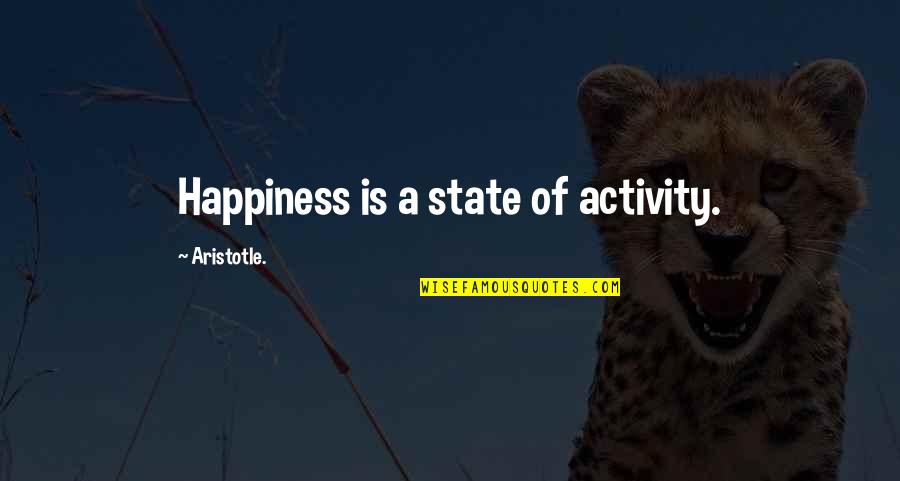 Happiness is a state of activity.
— Aristotle.
Happiness is a state of activity.
— Aristotle.
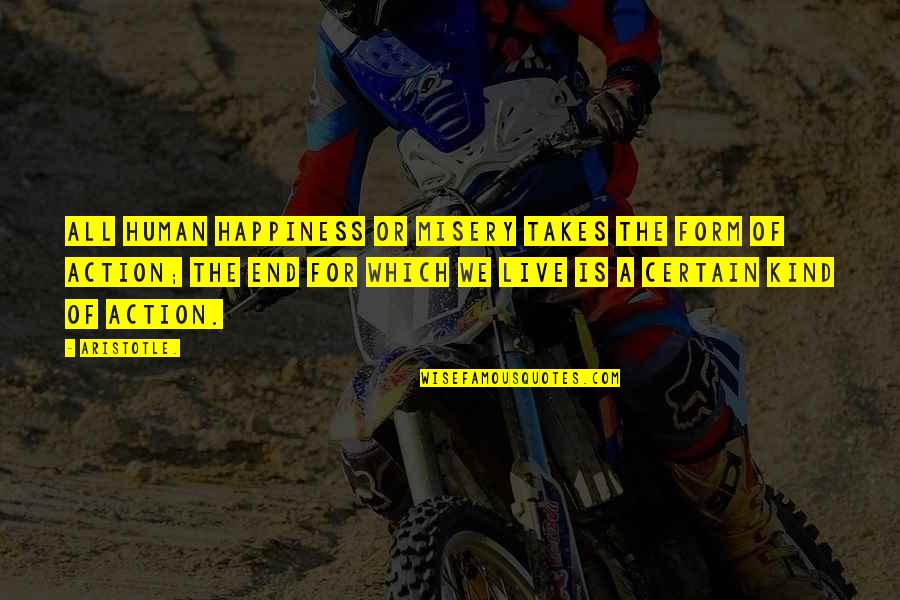 All human happiness or misery takes the form of action; the end for which we live is a certain kind of action.
— Aristotle.
All human happiness or misery takes the form of action; the end for which we live is a certain kind of action.
— Aristotle.
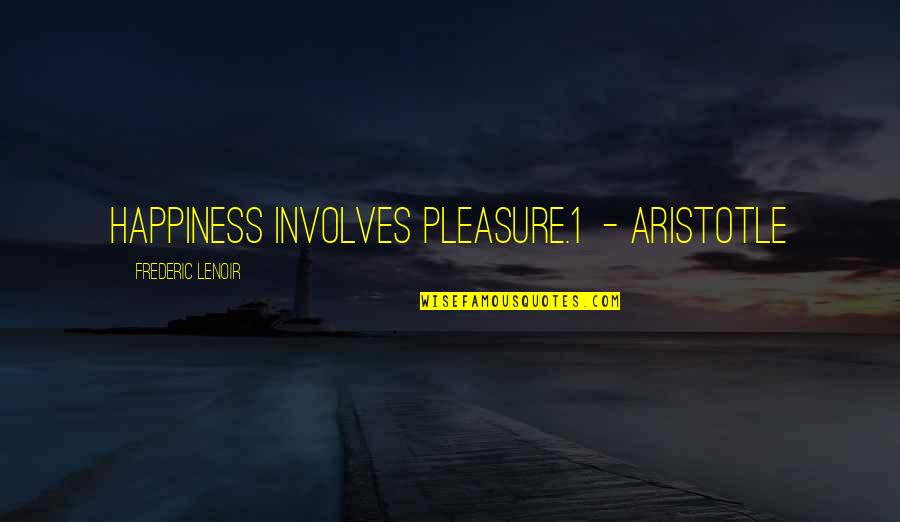 Happiness involves pleasure.1 - Aristotle
— Frederic Lenoir
Happiness involves pleasure.1 - Aristotle
— Frederic Lenoir
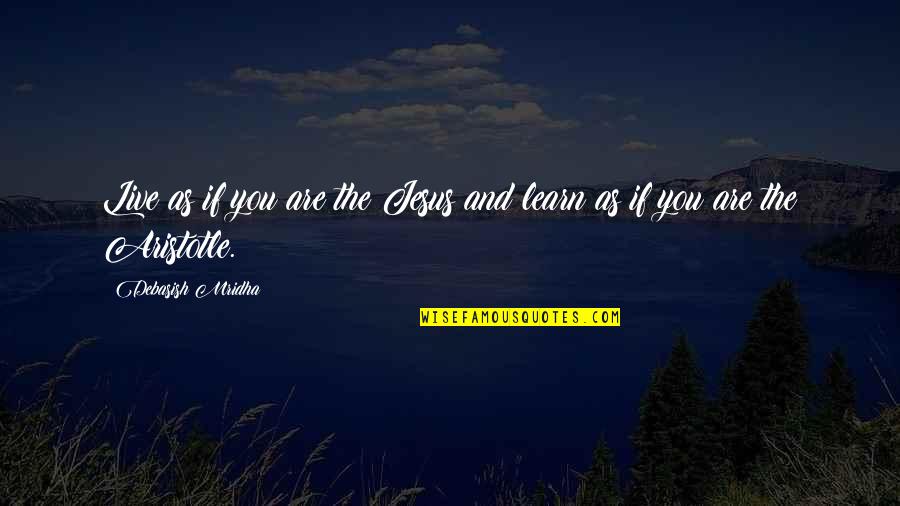 Live as if you are the Jesus and learn as if you are the Aristotle.
— Debasish Mridha
Live as if you are the Jesus and learn as if you are the Aristotle.
— Debasish Mridha
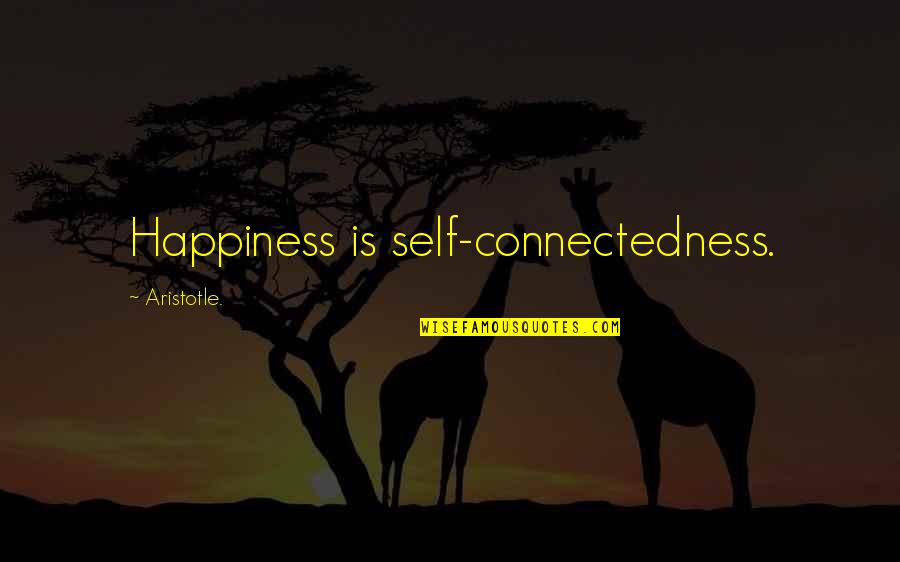 Happiness is self-connectedness.
— Aristotle.
Happiness is self-connectedness.
— Aristotle.
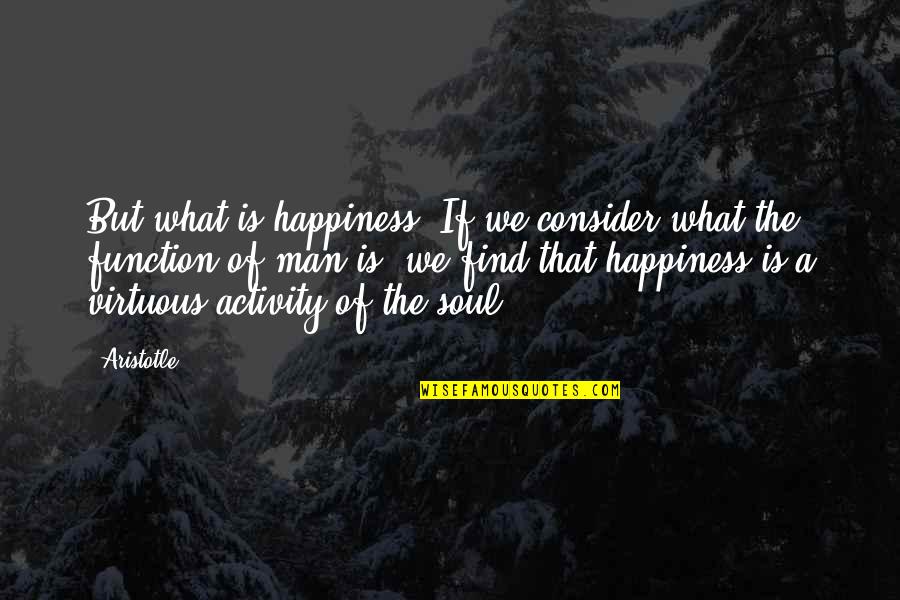 But what is happiness? If we consider what the function of man is, we find that happiness is a virtuous activity of the soul.
— Aristotle.
But what is happiness? If we consider what the function of man is, we find that happiness is a virtuous activity of the soul.
— Aristotle.
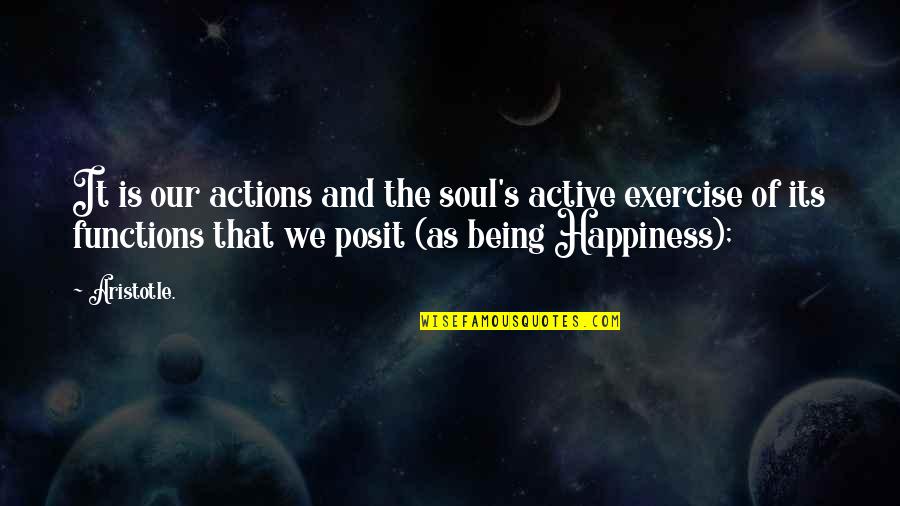 It is our actions and the soul's active exercise of its functions that we posit (as being Happiness);
— Aristotle.
It is our actions and the soul's active exercise of its functions that we posit (as being Happiness);
— Aristotle.
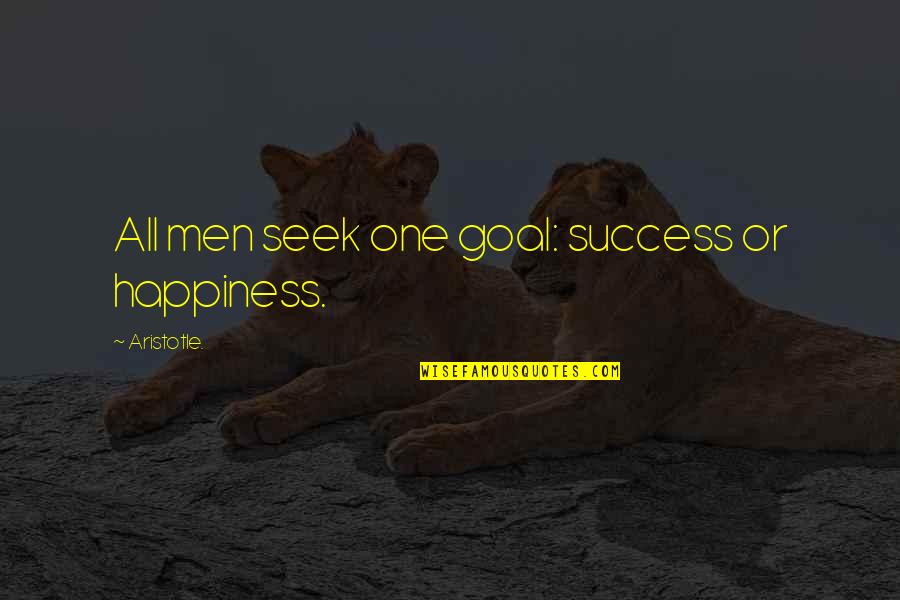 All men seek one goal: success or happiness.
— Aristotle.
All men seek one goal: success or happiness.
— Aristotle.
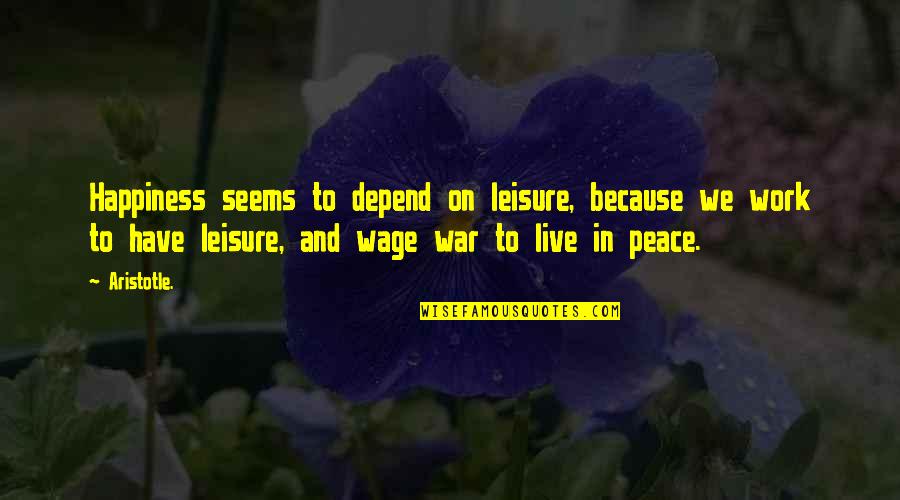 Happiness seems to depend on leisure, because we work to have leisure, and wage war to live in peace.
— Aristotle.
Happiness seems to depend on leisure, because we work to have leisure, and wage war to live in peace.
— Aristotle.
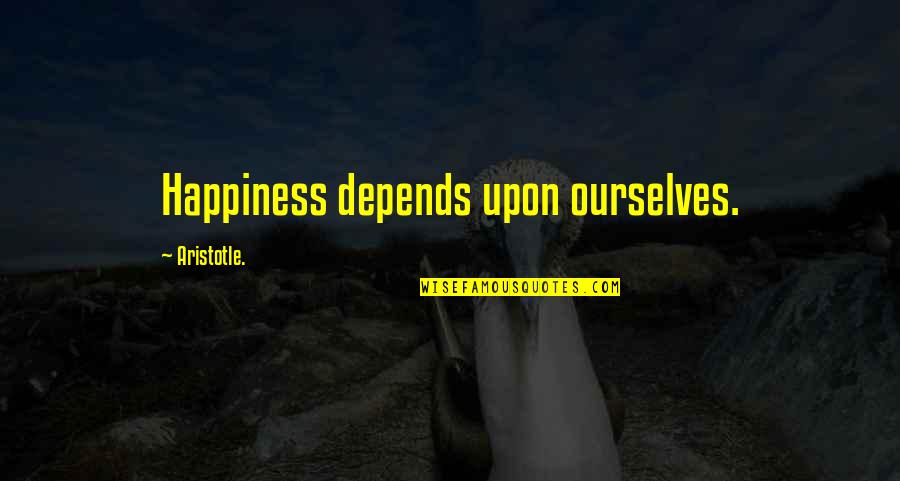 Happiness depends upon ourselves.
— Aristotle.
Happiness depends upon ourselves.
— Aristotle.
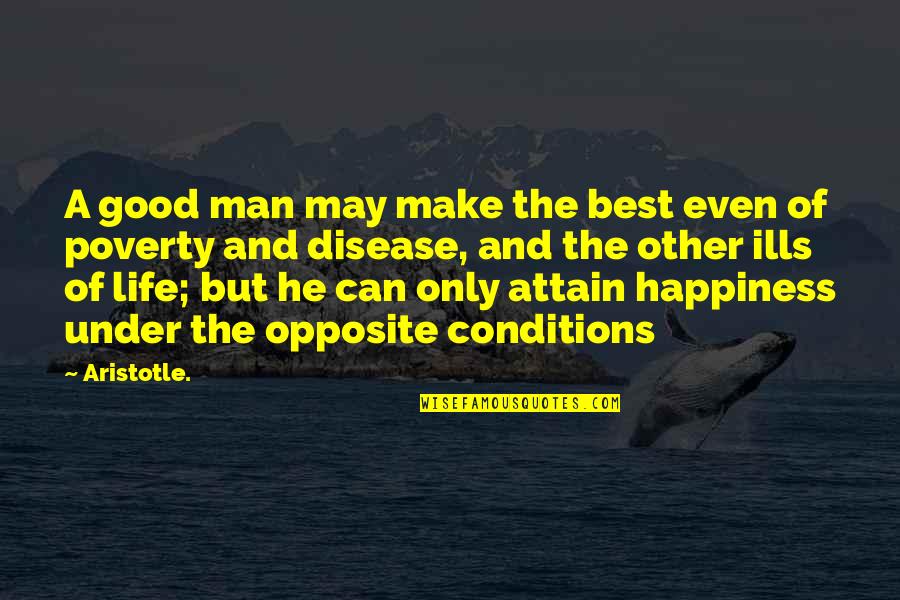 A good man may make the best even of poverty and disease, and the other ills of life; but he can only attain happiness under the opposite conditions
— Aristotle.
A good man may make the best even of poverty and disease, and the other ills of life; but he can only attain happiness under the opposite conditions
— Aristotle.
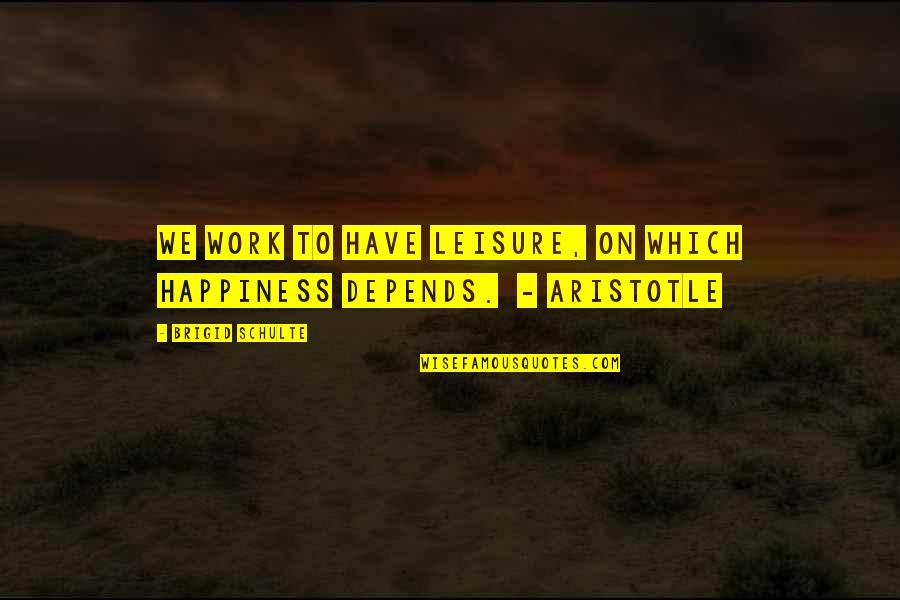 We work to have leisure, on which happiness depends. - Aristotle
— Brigid Schulte
We work to have leisure, on which happiness depends. - Aristotle
— Brigid Schulte
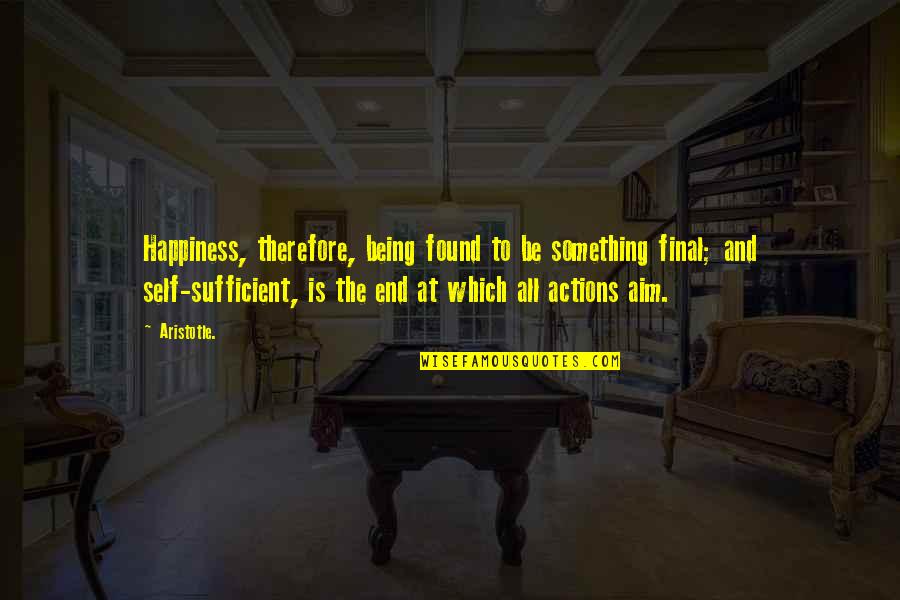 Happiness, therefore, being found to be something final; and self-sufficient, is the end at which all actions aim.
— Aristotle.
Happiness, therefore, being found to be something final; and self-sufficient, is the end at which all actions aim.
— Aristotle.
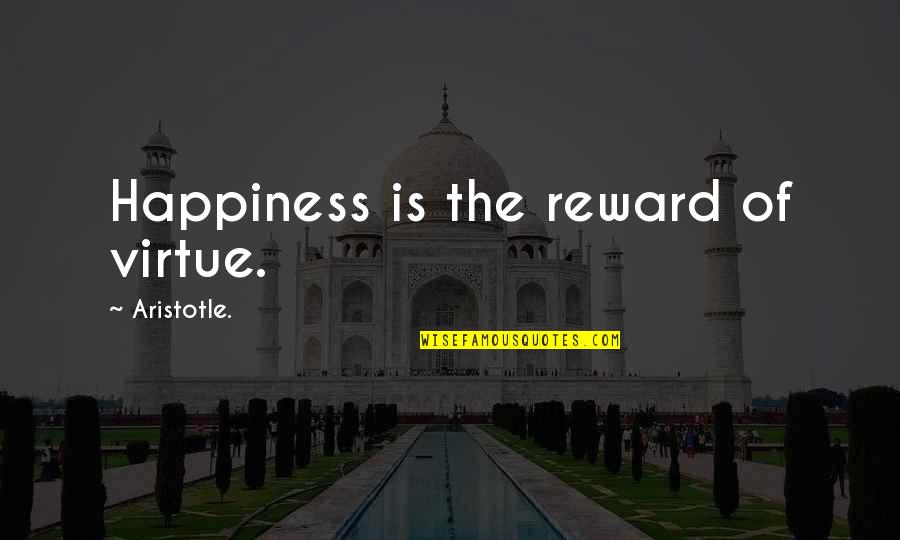 Happiness is the reward of virtue.
— Aristotle.
Happiness is the reward of virtue.
— Aristotle.
 Happiness also requires external goods in addition.
— Aristotle.
Happiness also requires external goods in addition.
— Aristotle.
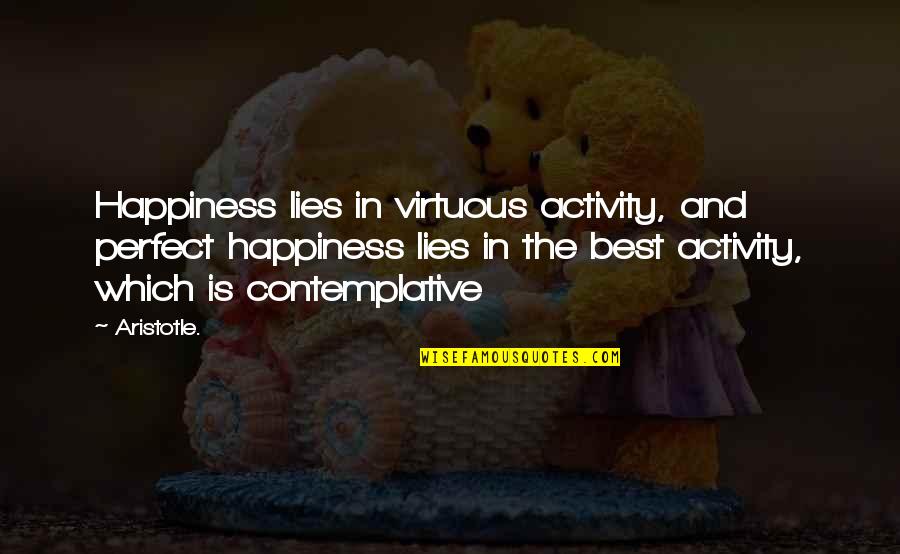 Happiness lies in virtuous activity, and perfect happiness lies in the best activity, which is contemplative
— Aristotle.
Happiness lies in virtuous activity, and perfect happiness lies in the best activity, which is contemplative
— Aristotle.
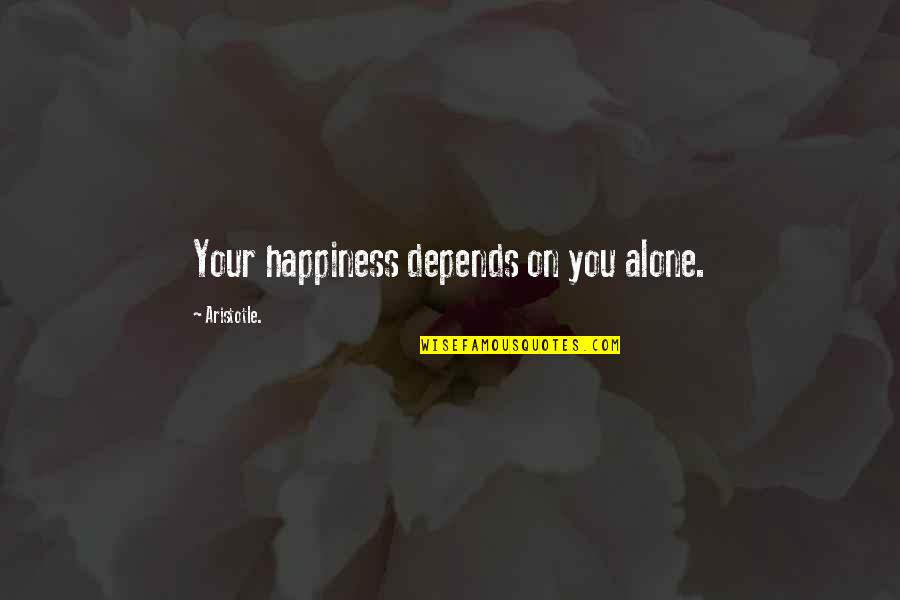 Your happiness depends on you alone.
— Aristotle.
Your happiness depends on you alone.
— Aristotle.
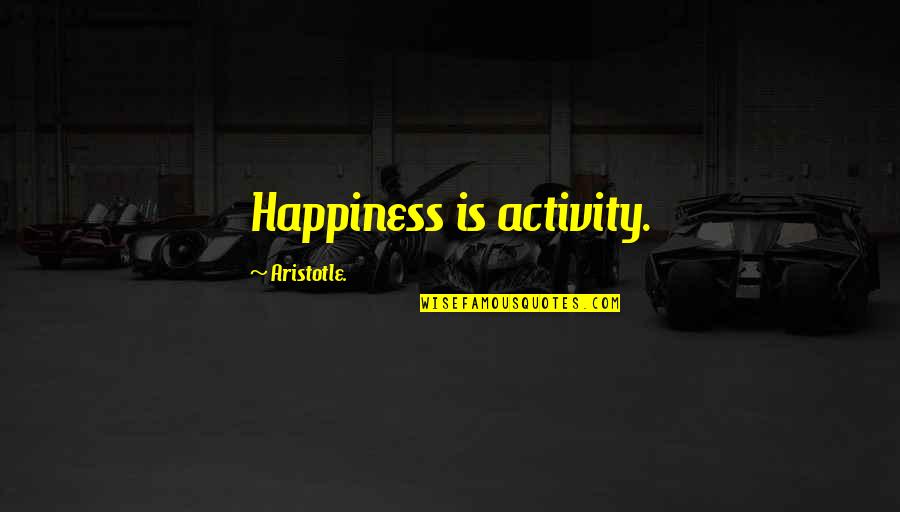 Happiness is activity.
— Aristotle.
Happiness is activity.
— Aristotle.
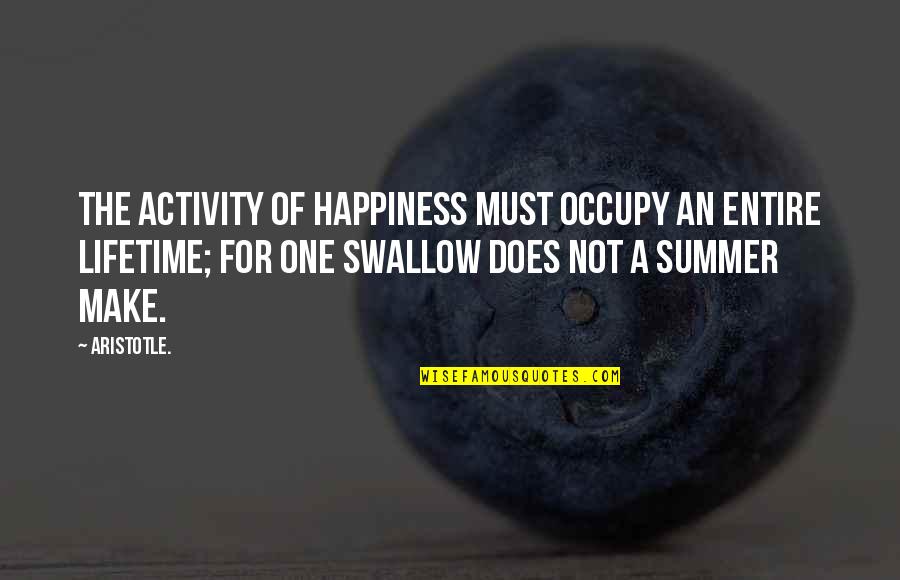 The activity of happiness must occupy an entire lifetime; for one swallow does not a summer make.
— Aristotle.
The activity of happiness must occupy an entire lifetime; for one swallow does not a summer make.
— Aristotle.
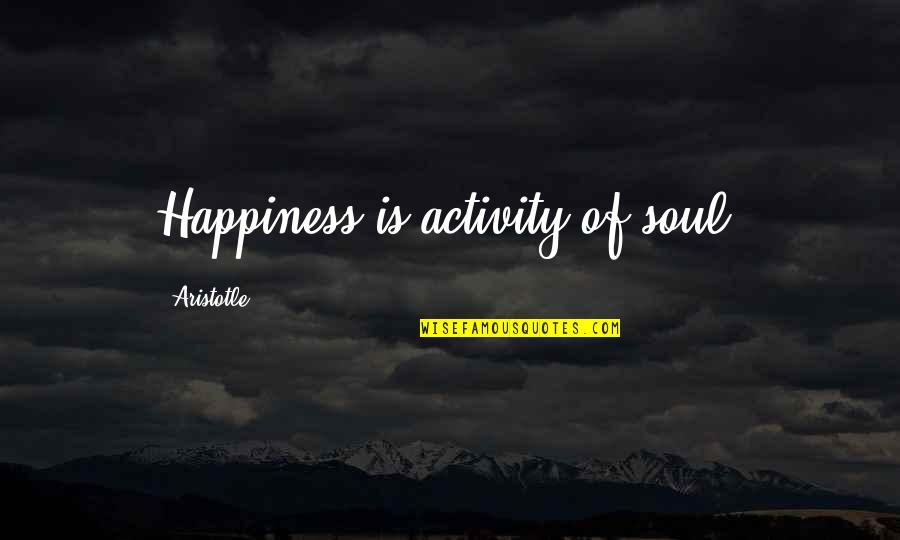 Happiness is activity of soul.
— Aristotle.
Happiness is activity of soul.
— Aristotle.
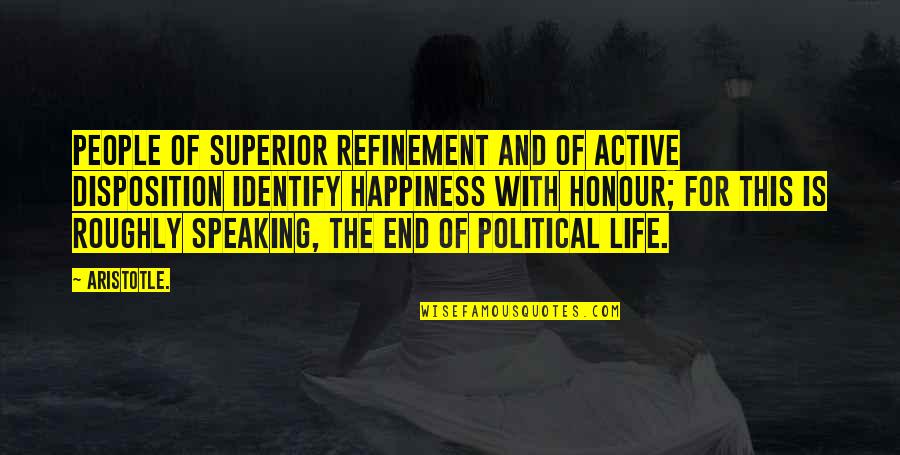 People of superior refinement and of active disposition identify happiness with honour; for this is roughly speaking, the end of political life.
— Aristotle.
People of superior refinement and of active disposition identify happiness with honour; for this is roughly speaking, the end of political life.
— Aristotle.
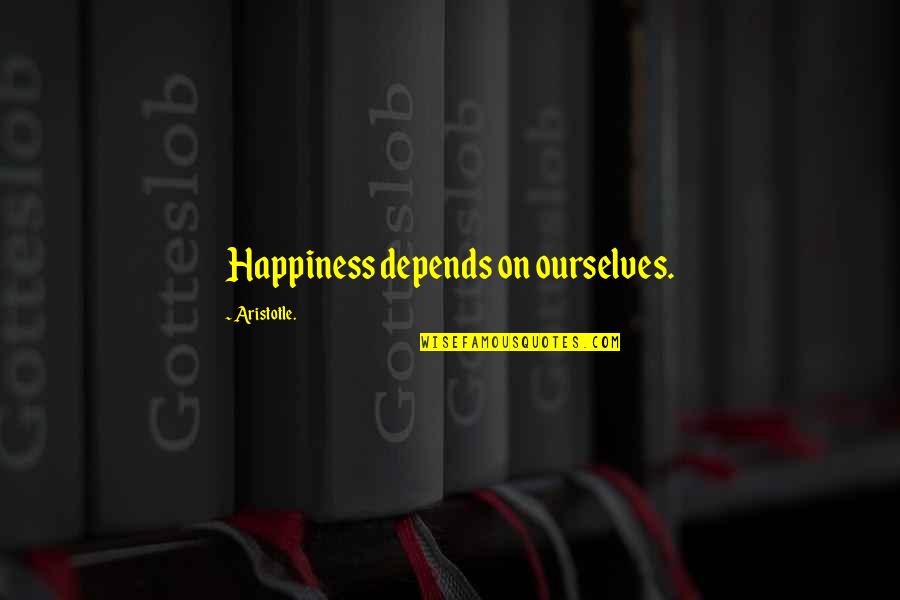 Happiness depends on ourselves.
— Aristotle.
Happiness depends on ourselves.
— Aristotle.
















